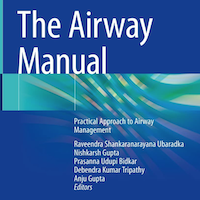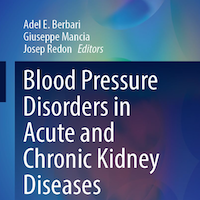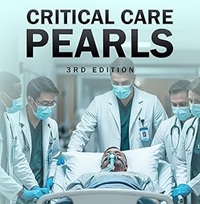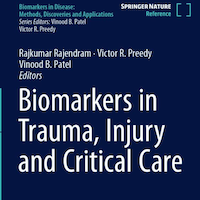Tag: stress
Conquer Your Toughest Gift-Giving Challenge (and Save Big!)
Ready to sleigh your holiday shopping list before the stress sets in? From the avid baker and the dedicated gamer to the crafty artist, you'll find the perfect, thoughtful gift for every interest at Amazon's holiday store. You... read more
Patients Under Mechanical Ventilation Are Highly Perceptive
This meta-synthesis provides insights into the perception of intensive care patients under Mechanical Ventilation (MV) who are continuously observing their own lives. This process is complex and involves a highly differentiated... read more
Low Decent Work Perception Among PICU Nurses
The level of decent work perception among PICU nurses in general hospitals is relatively low and is influenced by factors such as age, educational level, professional title, average monthly income, and personal experience... read more
Unlocking the Predictive Power of Nutritional Scores in Septic Patients
The study highlights the mNUTRIC score's practicality and reliability in assessing nutritional and inflammatory risks in septic patients, particularly in non-ICU settings. These findings suggest its potential utility... read more
Increased Sound Levels in the Cardiac ICU Associated with Increased Heart Rate, Blood Pressure, and Sedation
Sound levels in the CICU were consistently higher than recommended. An increase in heart rate, blood pressure and sedation utilization may suggest a stress response to persistent and sudden loud sounds. Given known negative... read more
Therapy Dogs Aren’t Just for Patients
My hospital brought in a therapy dog for our ED team after a critical incident stress debriefing (CISD). I had never received dog therapy before. The big eyes and loving licks on our hands honestly helped. Perhaps what... read more
Relationship between Concentrations of Oxygen and Levels of Oxidative Stress in Patients Receiving Oxygen Therapy for Severe COVID-19 Pneumonia
We evaluated the potential of high-flow oxygen therapy to increase oxidative stress and inflammation in COVID-19 patients. Our observation of decreased MDA levels when transitioning hypertensive patients from high-flow to... read more
COVID-19 Leaves Lasting Impact on Nursing Practices and Job Satisfaction
The COVID-19 pandemic exacerbated the difficulties nurses experience, especially in emergency departments, requiring adjustments in practice care settings and continuing to impact their overall job satisfaction. Nursing... read more
Long-term Effects of Flexible Visitation in the ICU on Patients’ Mental Health
Flexible ICU visitation, compared to the restrictive visitation, was associated with a significant reduction in the 1-year prevalence of post-traumatic stress symptoms in family members. A total of 519 family members were... read more
Critical Care: A New Nurse Faces Death, Life, and Everything in Between
Doctors heal, or try to, but as nurses we step into the breach, figure out what needs to be done for any given patient today, on this shift, and then, with love and exasperation, do it as best as we can. Critical Care... read more

PTSD, Workplace Trauma Lower Among First-Year Residents During COVID-19
Contrary to popular belief, rates of post-traumatic stress disorder (PTSD) and workplace trauma exposure was lower among first-year medical residents during the COVID-19 pandemic than in years prior, according to new research.1 In... read more
Overcoming Mental Health Stigma For Nurses
What’s the first thought that comes to mind when you think about mental illness? Is it something negative? If so, it probably comes from the stigma associated with mental health. A stigma is defined as "a mark of disgrace... read more
Fear and Insight in the ICU Bed
Mid-morning dressing changes, hours wasted, going through each cut methodically. Dressing off, wound cleaned, redressed. The brunt of pain dealt with by nature before giving in. The intensive care unit (ICU) nurse offers... read more
Feelings of Strangeness in ICU Patients
After several weeks in the intensive care unit (ICU) following a lung infection, Mr Pol wakes up from a coma and gradually becomes aware of his situation. The healthcare team rejoice in the successful outcome of his extubation:... read more
Who the hell would want to work in healthcare?
Our health sector is in crisis. Doctors are overworked, nurses are burnt out and underpaid. Many healthcare professionals are coming close to retirement and others are simply leaving their professions for greener pastures.... read more
Music Therapy Intervention to Treat Sedation-Related Delirium in Critical Care
Sedation is an essential component of treatment for some patients admitted to the intensive care unit, but it carries a risk of sedation-related delirium. Sedation-related delirium is associated with higher mortality and... read more
The 1,3,5 Approach to Pediatric Cardiac Arrest
While pediatric cardiac arrests are thankfully rare, their shock waves can seem incalculable. Several studies have outlined the mental health toll that these events can have on everyone involved. There is an appreciable... read more
Plasma Hyaluronan, Hyaluronidase Activity and Endogenous Hyaluronidase Inhibition in Sepsis
Elevated plasma hyaluronan levels coincided with a concomitant decrease in effective plasma HYAL activity and increase of endogenous plasma HYAL inhibition both in experimental and clinical sepsis. In acute pancreatitis,... read more
How One Patient Was Treated for a Stroke Via Telemedicine
A patient believed to have suffered a stroke typically gets transported to the nearest emergency room for tests to determine the best course of action. Telemedicine at Johns Hopkins Medicine enabled one patient to have... read more
Omicron Magnifies the Distress in the Health Care Labor System
In December 2020, to the tune of rousing cheers, the first health care workers began getting vaccinated against COVID-19. A year later, the cheers have died down, vaccination rates have plateaued, and the Omicron wave... read more
The Relationship Between Vitamin D and Asthma Exacerbation
Asthma is a chronic airway inflammatory condition that affects millions of people worldwide. It presents with reversible bronchoconstriction that makes it difficult for patients to breathe. Asthma flare-ups have several triggers,... read more
Scripts for Subconjunctival Hemorrhage, Fainting and Syncope, and Viral Illness
Many parts of the ED encounter interfere with patient or family comprehension, not the least of which is the ED's noisy, hurried environment. But other factors affect what they understand and remember about the encounter—their... read more









